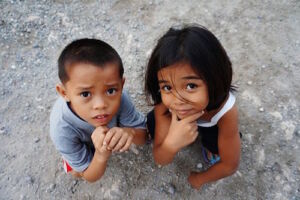 Last month World Nomads published an excellent article about orphanage tourism and why it should be avoided. At the GYA we are heavily invested in raising the ethical bar on service learning, across the board for gap year programs and students. That’s one of the primary goals of our accreditation process and one of the reasons that we encourage gap year counselors and students to thoroughly vet the organizations they choose to partner with around the world.
Last month World Nomads published an excellent article about orphanage tourism and why it should be avoided. At the GYA we are heavily invested in raising the ethical bar on service learning, across the board for gap year programs and students. That’s one of the primary goals of our accreditation process and one of the reasons that we encourage gap year counselors and students to thoroughly vet the organizations they choose to partner with around the world.
Having good intentions is not enough. We are responsible for the actual outcomes of our service learning abroad. Where at risk populations are concerned, particularly orphans, the implications are often dire and the impacts life long.
The following is an excerpt from the World Nomads article:
What is Orphanage Tourism?
Orphanage tourism pretty much does what it says on the can; it’s a way that volunteers can be involved in the lives of children in care during their travels, helping to fund orphanages to, in theory, offer children better lives. In reality, it’s not always the case.Orphanage tourism originated from an appetite to experience real life, and an increased ability to travel to more of the world, including developing countries. Most commonly, volunteers who want to work with orphaned children come from backgrounds of comparative wealth, and genuinely hope their involvement will help the children, while also enriching their own travel experience. As the media exposes us to more and more images of children in need around the world, the desire to give back in this way increases.
What Are the Negatives of Orphanage Tourism?
According to charity Save The Children, the number of orphanages in some countries has increased, while the number of orphaned children has not. In Cambodia, for example, the number of residential care institutions has dramatically risen in the last 10 years, while the number of orphans has significantly reduced.“Well-intentioned tourists visit orphanages and donate money,” explains LearningService.info co-founder Daniela Papi-Thornton. “In direct response to these good intentions, an industry has formed to profit from vulnerable children. In many cases, the children are not orphans; they are taken from parents who have been sold a story that a better life awaits them in the city, where they will be given an education and be well cared for. At its very core, this amounts to child slavery, and travelers should avoid participating in it.”Another issue is allowing travelers access to children, unchecked, which raises an important issue of child safety; not everyone visiting orphanages has the children’s best interests at heart. “It’s crazy when you think that orphanages are allowing foreign, unskilled and transient strangers intimate access to children,” says Liz Manning, Intrepid Travel’s Responsible Business Manager. “It’s a major child protection risk.”
There is also the issue of the effect encounters with an ever-changing group of carers has on children. “The constant rotation of adults coming in and out of vulnerable children’s lives also creates attachment disorders,” says Manning, “the effects of which are lifelong and inter-generational.” While no doubt, a traveler who has signed up to help at an orphanage hopes they will offer a helpful extra pair of hands to benefit the day-to-day running of the place, in reality, this is often just a way of eliciting an emotional connection from volunteers who then feel compelled to donate. “This is what fuels the proliferation of orphanages,” says Manning, “and the need to fill them with children. Research has found 80 percent of orphans have at least one parent at home.”For orphanage owners and managers, this is how they make money, and while the volunteers might feel social gratification, the children almost certainly don’t. Children are not and never should be tourist attractions, and yet many orphanages are profiting from the good intentions of well-meaning volunteers.
What are the Solutions (or Better Options) to Orphanage Volun-Tourism?
Like the problem itself, the potential solutions are complicated and fraught with unintended consequences. Some students and organizations have opted to avoid working with orphanages at all on their gap years. Others carefully vet the organizations they work with and make longer term commitments, avoiding “dropping in and out” of the lives and hearts of already at risk and vulnerable children. Others choose to support these institutions in an administrative way, thus forwarding their work without a negative impact on the populations they serve. There are options!
For a deeper look at the solutions, we encourage you to read the whole World Nomads article, and consider your gap year volunteering in light of the impacts you’ll have, taking responsibility for the good, as well as the unintended negatives. Positive intentions do not always render positive impacts.
Categories
- Advising (7)
- Alumni (2)
- Career (5)
- College & University (15)
- Communication (17)
- DEIA (4)
- Fair Trade Learning (3)
- Finances (12)
- Gap Year Benefits (69)
- Growth & Development (9)
- Leadership (6)
- Learning & Reflection (56)
- Mental Health (4)
- Planning (61)
- Professional Development (5)
- Research (4)
- Risk Management (3)
- Safety (5)
- Service-Learning (10)
- Standards & Accreditation (1)
- Sustainability (6)
- Voices Project (20)
